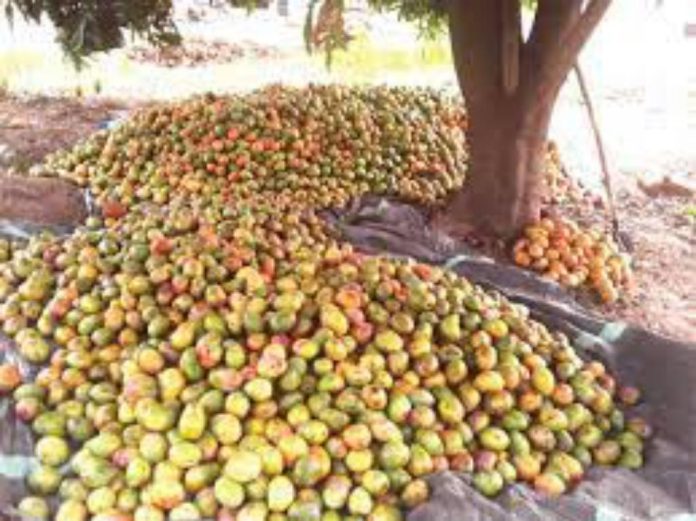A trending item of discussion on Twitter recently has been the loss of tonnes of fruits produced every farming season in Benue state. People have been asking why millions of fruits have been wasted, which could have contributed to earning much-needed resources.
This debate is interesting in several ways. Most of those raising this question are doing so with the belief that they are propelling “new” initiatives, or that they are now more “woke.” But this position reflects a poor grasp of history. And this is a very conscious assault on our psyche.
The reason why Makurdi has not had a fruit juice factory to produce mango and other fruit juices is that the Nigerian ruling class is in an ideological agreement with global capitalism based on a neoliberal consensus, which promotes the sale of primary products for Africa over manufacturing. This tacit understanding has been in place since the regime of General Ibrahim Babangida. He started the implementation of this ruling class consensus with global imperialism with the Structural Adjustment Programs (SAPs).
The government rendered state-owned enterprises moribund or transferred them to private wealth through SAP. The textile industry, as of 1989, was employing over 250,000 Nigerians, but they killed it. Nigeria Airways was competing with Emirates and Ethiopian Lines, but they sold it off. Owena Holdings of the Old Ondo State had Owena Bank; Motors; Ifon Ceramic; Okitipupa Oil Palm PLC; Araromi Obu Robber Estate; the unique and mighty Oluwa Glass Company; and others. But they equally strangulated all of these.
The World Bank and International Monetary Fund (IMF) are the monitoring agencies that continue to keep the Nigerian economy in a state of perpetual underdevelopment. It is not accidental that all the “major” candidates in the presidential elections headed to Chatham House to openly worship at the altar of neo-liberalism.
This same set of the Nigerian ruling class that has been ruining our country over the last three decades trashed most of the industries created by former Governor Lateef Kayode Jakande’s Ibile Holdings in Lagos. Same Ibile now handles LagRide, which is obviously a third-party third arrangement with “private investors.” Ikeja Industrial Estate, which used to have thousands of workers, is now Ikeja Gospel Estate where people go to pray for work.
Coordinated by Chief Obafemi Awolowo, the Southwest used to have Oodua Investments. It is now in a horrible state as new generation governors have privatised these to the Development Agenda of Western Nigeria (DAWN) Commission, which today is a mirage, and has no employment worth. The Northwest used to have production collaboration with Peugeot Motors, which established assembly plants. And Arewa Textiles provided jobs directly to tens of thousands of people and scores of thousands more, indirectly. Kano and Kaduna used to be industrial hubs, but privatisation has closed those factories.
The reason why there are no mango juice factories in Makurdi is the same reason why there is no government-owned cement company in Okpella, Edo State. Only Rabiu and Dangote explore and exploit the resources there, while the state is kept starkly poor.
As it is today, the best performing airline in the country is Ibom Air; owned by Akwa Ibom State. This unique effort has put to lie the claim that “government has no business in business.” I smiled when I read Rufai Oseni tweeting about “no Billionaire employing over a million workers.” It is all about increasing their profit margins. That is why private companies often prefer to employ casual labour or workers on fixed-term contracts. This is why they prefer stealing from the national purse and becoming overnight billionaires instead of carrying out productive businesses.
If Nigerians want a mango juice factory in Makurdi, we must do away with this primitive capitalist system. Those who choose the phrase “from consumption to production” must understand that, if they are serious, it is an open call to fight the powers that be, one of whom is even the propagator of the same phrase as probably the largest importer in Nigeria.
Let me conclude here that we must rise and be ready to engage and defeat deregulation and fuel subsidy removal. We must equally fight for the collective redistributing of collective wealth. In the interest of the poor working people. This means we must all fight to build a new type of social and economic system, on the basis of which it will become a matter of democratic collective principle for both the states and federal governments to employ millions of people and add value to the tonnes of fruits grown in Benue and other states which currently go to waste.
by Kunle Wizeman AJAYI









